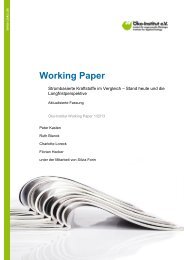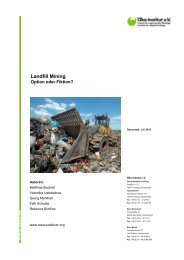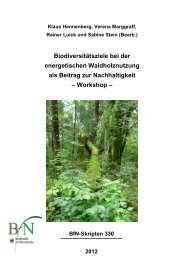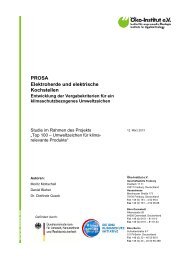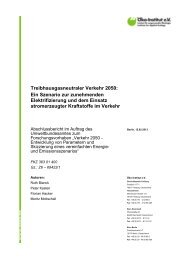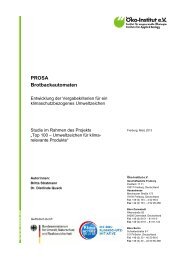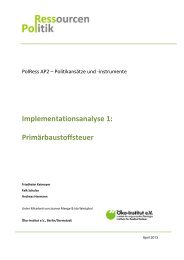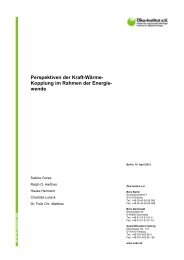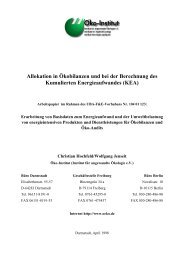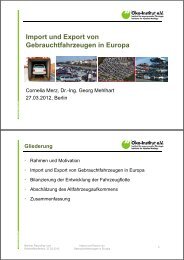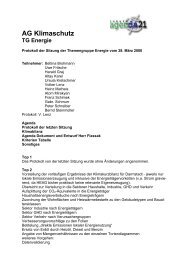BIOENERGY FOR EUROPE: WHICH ONES FIT BEST?
BIOENERGY FOR EUROPE: WHICH ONES FIT BEST?
BIOENERGY FOR EUROPE: WHICH ONES FIT BEST?
You also want an ePaper? Increase the reach of your titles
YUMPU automatically turns print PDFs into web optimized ePapers that Google loves.
7.1 Country specific life cycle comparisons 129<br />
ETBE versus MTBE for transportation – Germany<br />
Use of fossil fuels<br />
Greenhouse effect<br />
Acidification<br />
Eutrophication<br />
Summer smog<br />
Nitrous oxide**<br />
Human toxicity**<br />
* How to interpret the diagram:<br />
Advantages for<br />
biofuel<br />
Advantages for<br />
fossil fuel<br />
-1000 -500 0 500 1000 1500<br />
German inhabitant equivalents* per 1 billion km<br />
The figure shows the results of complete life cycle comparisons where gasoline with component ETBE<br />
from sugar beet (12 vol. % = 10 % of energy content) is used in passenger cars instead of gasoline with<br />
fossil MTBE (12 vol. %). The results are given for a distance of 1 billion km being covered by passenger<br />
cars using the gasoline with the bio-component instead of fossil component. This is equivalent to<br />
the average annual mileage of about 70,000 Germans. In this case for example the amount of greenhouse<br />
gas emissions that is being saved by substituting diesel fuel by ETBE is equal to the amount<br />
which nearly 700 German citizens would on average generate in one year (this is what is meant by<br />
“German inhabitant equivalents”).<br />
Remarks and conclusions<br />
The results show that both ETBE as well as MTBE have certain ecological advantages and disadvantages.<br />
• Advantages of the biofuel: use of fossil fuels, greenhouse effect<br />
• Advantages of the fossil fuel: acidification, eutrophication<br />
• Low or no significance: summer smog<br />
The data for ozone depletion and human toxicity tend to have a high uncertainty. Therefore these categories<br />
should not be included in the final assessment. (**See Chapter 4.1.2 and for details on all impact<br />
categories 3.3 and 3.4.)<br />
A further assessment in favour of or against ETBE or MTBE cannot be carried out on a scientific<br />
basis, because for this purpose subjective value judgements regarding the individual environmental<br />
categories are required which differ from person to person.



